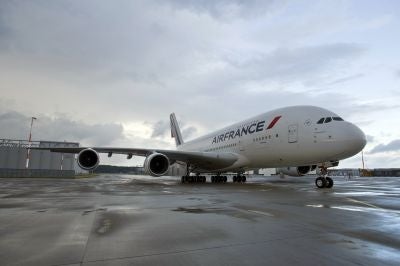It's been a busy week in green aviation, with both Boeing and Air France lifting the lid on their newest findings on how flying can be greener.
On March 31, US aircraft manufacturer Boeing released a report which it said showed "significant potential" for sustainable aviation fuel based on the jatropha-curcas, a plant which yields oil that can replace traditional fuel.
The study, which was conducted by the Yale University School of Environmental Studies, looked at the production of jatropha in Latin America, where governments in places such as Mexico and Brazil are keen to grow the crop, and suggested that greenhouse gas reductions of up to 60 percent could be made, compared to traditional jet fuel.
The results could strengthen the case for jatropha-based flights, which have already been tested by airlines such as Air New Zealand, TAM Airlines and Continental.
Air France has also been experimenting with its own green technology, using the enormous A380 superjumbo which it flies daily between Paris Charles de Gaulle and New York JFK.
The airline said April 1 that it had been working with air traffic controllers since January to improve the efficiency of each flight, by routing the aircraft more directly and flying higher to allow an optimized route around other aircraft.
On the ground, pilots have been taxiing with only two of the four engines, a measure which Air France claims can save 1,500 kg of carbon dioxide per flight.
In total, the measures have the potential to save 930 tonnes of carbon dioxide per year, says Air France, although the trial period isn't over yet.
See the Air France video: http://corporate.airfrance.com/en/press/media-library/videos/environment/objectif-moins-de-rejets-de-co2/
How to fly green
- Offset your carbon, normally an option offered by airlines (or use a third party offsetter).
- Try to use clean planes; older aircraft tend to be less efficient, so choose an airline which has a young fleet (use tools such as the one on Airfleets.fr to determine how old a fleet is).
- Travel economy; the extra space needed for business class makes planes less efficient per passenger.
- Fly direct for mid-haul flights, but include a stop for really long flights; ultra-long non-stop flights must also carry huge amounts of fuel which makes them less efficient.
- Try to use airports that aren't congested; busy airports 'stack' planes until they can land them, resulting in unnecessary emissions.
- Find an eco-friendly way to and from the airport; particularly if you're using an airport some way out of a city, use public transport instead of a car or taxi to get there or back.
Subscribe to Independent Premium to bookmark this article
Want to bookmark your favourite articles and stories to read or reference later? Start your Independent Premium subscription today.


Join our commenting forum
Join thought-provoking conversations, follow other Independent readers and see their replies